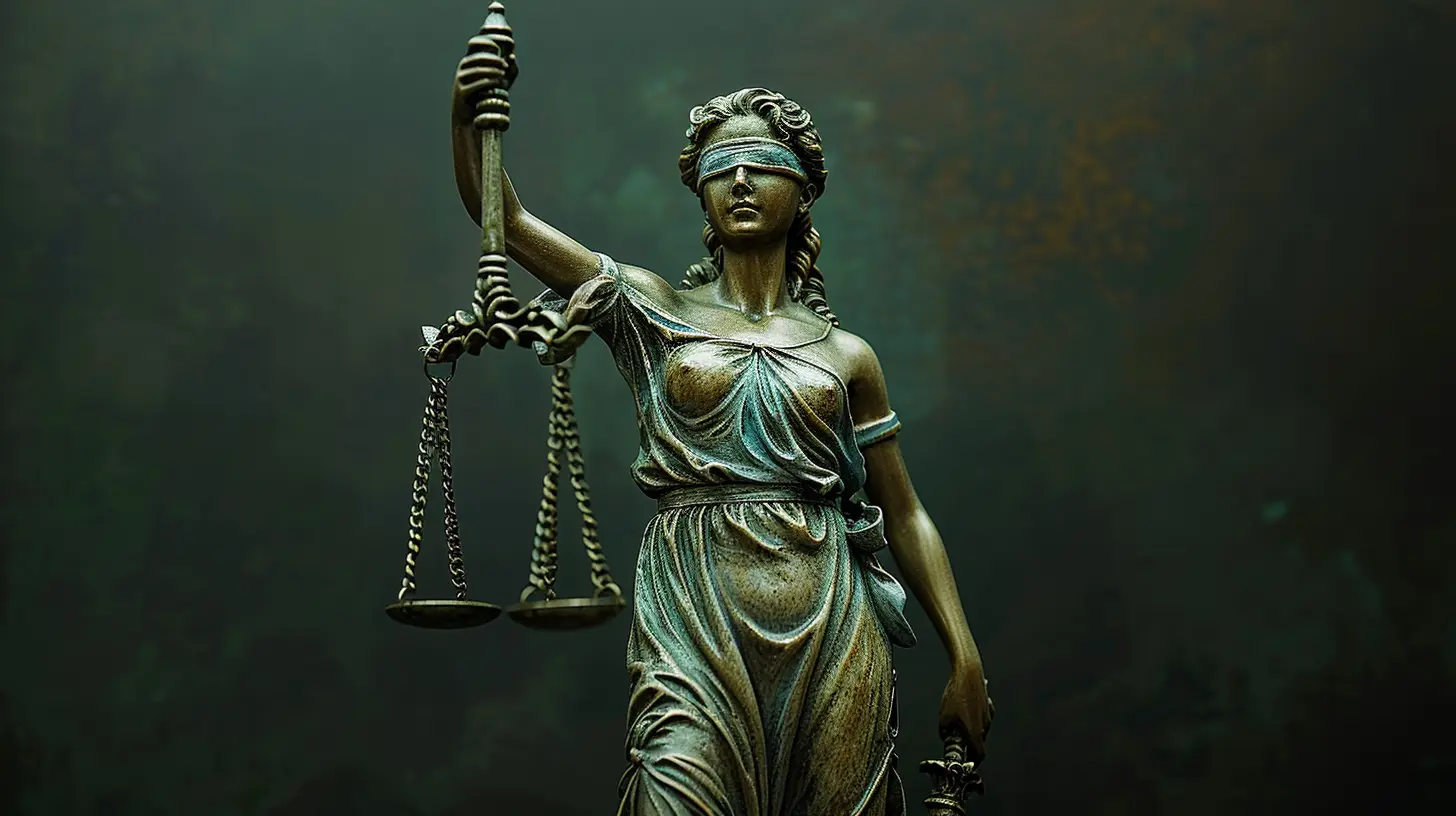How Financial Power of Attorney Protects Your Assets
29 May 2025
Life is unpredictable. One moment, everything seems to be running smoothly, and the next, an unforeseen event could leave you unable to manage your finances. What happens to your bank accounts, investments, or property if you're incapacitated? This is where a Financial Power of Attorney (POA) steps in as a powerful shield, ensuring your assets stay protected and well-managed.
But how exactly does it work? And why should you have one? Let’s break it down in a way that's easy to understand.

What Is a Financial Power of Attorney?
At its core, a Financial Power of Attorney is a legal document that allows you (the principal) to appoint someone you trust (the agent or attorney-in-fact) to handle your finances on your behalf. Whether you're traveling abroad, too ill to make decisions, or simply need assistance managing your assets, a POA ensures your financial matters are taken care of.Think of it like giving someone a spare key to your financial house. They can open doors, fix things, and ensure everything runs smoothly—just as you would.

Why You Need a Financial Power of Attorney
Many people mistakenly believe that only the elderly or those with significant wealth need a Financial POA. However, this document is essential for anyone who wants financial security and peace of mind. Here’s why:1. Protects Your Assets If You Become Incapacitated
Accidents and illnesses can strike unexpectedly. If you’re unable to manage your finances due to a medical emergency or cognitive decline, having a trusted individual with legal authority ensures your bills are paid, investments are handled, and your assets are safeguarded.2. Prevents Court-Appointed Guardianship
Without a POA in place, your family might have to go through a lengthy and costly legal process to gain control of your finances. Courts may appoint a guardian or conservator who might not be the person you would choose. A POA avoids this entirely by ensuring you decide who takes charge of your assets.3. Ensures Continued Financial Management
What if you're out of town or unable to access your accounts for a period of time? A POA allows your appointed agent to handle transactions, sign checks, manage investments, and oversee business affairs—keeping your financial life in order without disruption.4. Avoids Family Disputes
Money can cause friction in families, especially if there’s no clear direction on who should handle financial matters. A legally binding Financial Power of Attorney removes any ambiguity and prevents conflicts about who should step in.5. Allows Flexibility in Managing Finances
A Financial POA isn’t a one-size-fits-all document. You can customize it to suit your specific needs—whether you want to grant broad authority or limit it to certain tasks, like paying bills or managing real estate transactions.
Types of Financial Power of Attorney
Not all POAs are the same. Understanding the different types ensures you select the one that best suits your needs.1. General Power of Attorney
This grants broad authority to your agent, allowing them to handle financial transactions, pay bills, manage assets, and even make investment decisions. However, this type becomes invalid if you become incapacitated unless specified otherwise.2. Durable Power of Attorney
A Durable POA remains in effect even if you become incapacitated. This is one of the most recommended types as it ensures your agent can continue managing your affairs in serious situations, such as illness or disability.3. Limited (Special) Power of Attorney
This type grants authority for specific tasks—such as selling a property, handling a business transaction, or managing a bank account while you're away. Once the task is complete, the POA expires.4. Springing Power of Attorney
A Springing POA only takes effect under certain conditions, usually if you become incapacitated. While this might seem like a great option, it can lead to complications if there are legal disputes over whether you meet the conditions set in the document.
How to Choose the Right Agent for Your POA
Selecting the right person to handle your finances is crucial. Here are some key considerations:- Trustworthiness: Your agent should be responsible, ethical, and reliable.
- Financial Knowledge: While they don’t need to be an expert, they should have basic financial literacy.
- Willingness to Act: Ensure they’re willing and available to manage your affairs when needed.
- No Conflicts of Interest: Choose someone who prioritizes your best interests over personal gain.
Many people appoint a spouse, adult child, or trusted friend, but you can also name a professional, such as an attorney or financial advisor, if you prefer an impartial party.
Steps to Create a Financial Power of Attorney
Setting up a Financial POA doesn’t have to be complicated. Here’s a simple step-by-step guide:1. Determine the Type of POA You Need
Decide whether you need a General, Durable, Limited, or Springing POA based on your situation and long-term planning goals.2. Choose the Right Agent
Carefully select someone you trust completely to manage your finances responsibly.3. Outline the Powers You Want to Grant
Be specific about what financial decisions your agent can and cannot make. This may include:- Managing bank accounts
- Paying bills and taxes
- Buying or selling real estate
- Handling investments
- Running a business on your behalf
4. Draft the Document
You can work with an attorney to draft a legally sound document or use state-approved templates. However, professional legal help is recommended for major financial matters.5. Sign and Notarize It
Most states require notarization to make the POA legally binding. Some states may also require witnesses.6. Distribute Copies
Provide copies to:- Your agent
- Financial institutions (banks, investment firms)
- Family members (if necessary)
- Your attorney
7. Review and Update as Needed
Life changes, and so may your financial situation. Periodically review and update your POA to ensure it still aligns with your wishes.
Common Misconceptions About Financial POAs
Despite its benefits, some people hesitate to create a Financial Power of Attorney due to common myths. Let’s clear them up:"I'll Lose Control Over My Assets"
False! You can specify limitations on what your agent can and cannot do. A POA doesn’t mean handing over total control—it just ensures someone can act if needed."I Only Need a POA When I Retire"
Emergencies can happen at any age. Having a POA early in life protects you in case of accidents, illnesses, or unexpected financial complications."My Spouse Can Handle Everything Without a POA"
While your spouse may have access to joint accounts, they might not have the legal authority to manage assets solely in your name. A POA eliminates barriers.Final Thoughts
Life is uncertain, but your finances don’t have to be. A Financial Power of Attorney is a powerful tool that ensures your assets are protected and managed by someone you trust, no matter what happens.Whether you're planning for the future or safeguarding your family's financial security, setting up a POA is a wise and proactive decision. Don’t wait for the unexpected—take control of your financial future today!
all images in this post were generated using AI tools
Category:
Legal ProtectionsAuthor:

Uther Graham
Discussion
rate this article
3 comments
Alice Stevens
Imagine a superhero for your wallet! A Financial Power of Attorney swoops in to shield your assets. Capes optional, but peace of mind is guaranteed!
June 23, 2025 at 4:21 AM

Uther Graham
Great analogy! A Financial Power of Attorney truly is a superhero for your finances, ensuring your assets are protected when you can't manage them yourself.
Sera Fuller
This article beautifully highlights the crucial role a Financial Power of Attorney plays in safeguarding your assets. It’s reassuring to know that with the right planning, we can ensure our financial well-being and protect our loved ones. Thank you for sharing such valuable insights on this important topic!
June 5, 2025 at 11:48 AM

Uther Graham
Thank you for your kind words! I'm glad you found the insights helpful in understanding the importance of a Financial Power of Attorney for protecting our assets.
Vienna Underwood
This article beautifully highlights the crucial role of a Financial Power of Attorney in safeguarding our assets. Thank you for shedding light on this important topic!
June 1, 2025 at 11:50 AM

Uther Graham
Thank you for your kind words! I'm glad you found the article helpful in understanding the importance of a Financial Power of Attorney.



